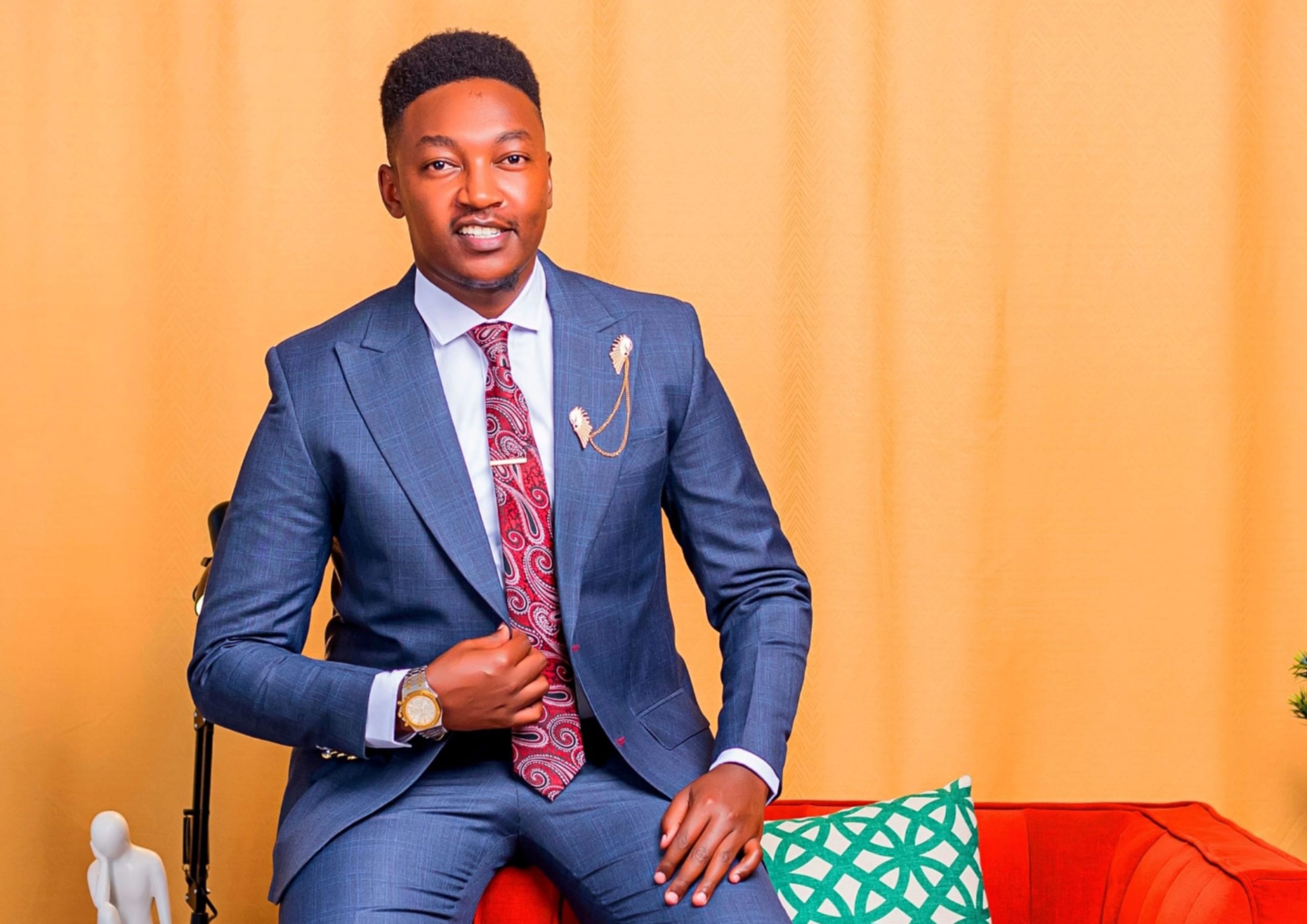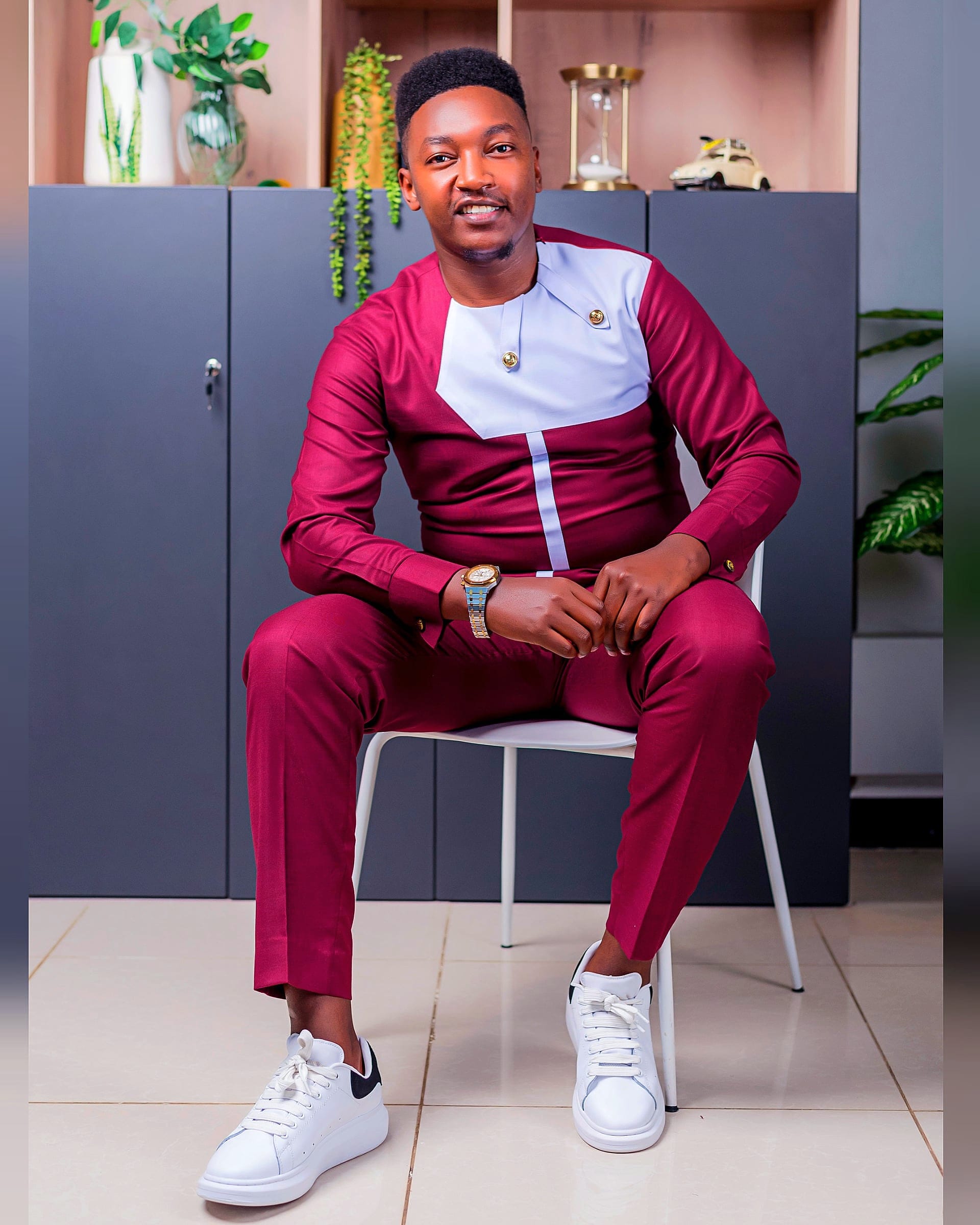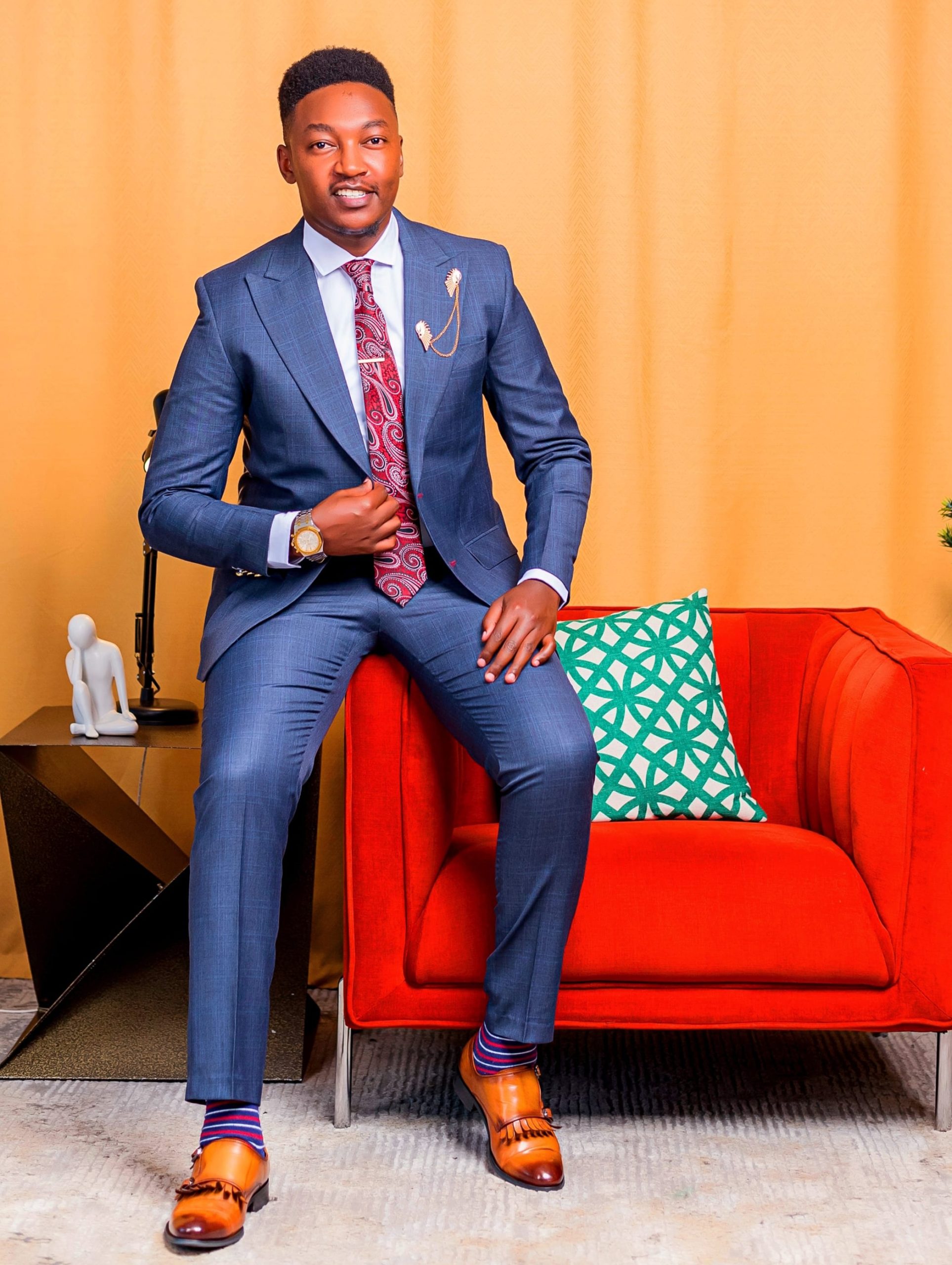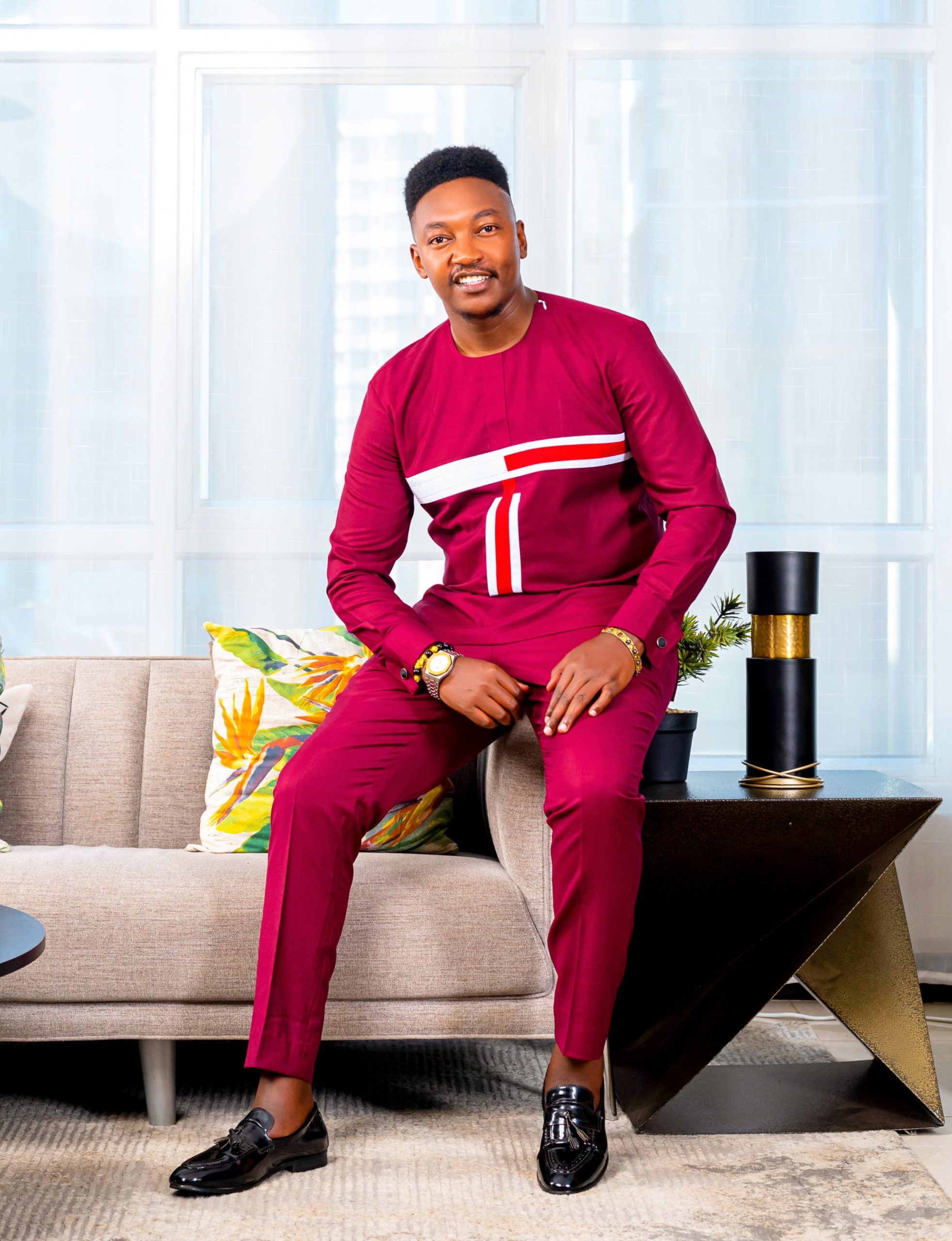Business
The Story of a Fashion Entrepreneur – How a Kenyan Actuary Became a Fashion Designer

With an eye for fashion and always dressed for the occasion, Samuel Njoroge never once imagined that at 27 he would be a proud CEO of SN Tailored Suits and Co-founder of Urban Suave Sartorial Limited. Through his hard work and determination, he was able to venture into fashion entrepreneurship and grow a successful startup brand, rooted in his own passion, to create customized hand-made suits for clients.
Born and raised in Western Kenya in Butere town in Kakamega County, Samuel schooled in Butere until 2007, after the post-election violence, when he and his parents relocated to Thika – where he finished his primary education. He attended Nakuru high school for his form one and two education then later transferred to Kakamega High School where he completed his education. He attended Maseno University where he pursued a Bachelor’s degree in Actuarial Science.

How did it all start?
According to Samuel, he discovered his love for fashion on campus. Due to his interest in politics, he used to aid others in campaigning for positions in the University. However, most people mistook him as the one vying for the position due to his outfits. He was heralded as a fashion icon among his peers and was known for his classy and sharp-dressing that mostly consisted of suits. The constant praise from his peers opened his eyes to a world where one’s dressing clearly determined how one perceives another. “In university, I wanted to do something different, I wanted to stand out. This is something I’ve always aimed for in my life. In whatever situation I am in I wanted to stand out. This is because I realized people take you seriously dressed in formal wear instead of casual wear,” he told Inversk Magazine in an interview.
Due to his financial condition in campus, he was not able to afford fancy and expensive suits. According to him, designer-brand suits were things he saw in magazines or the television. He had to make do with Mutumba blazers which he bought at a low price of Ksh.500 then looked for separate pants and shirts to complete the look. The final product ended up making him look “expensive” and “sharp” and this was when he realized he could make it a business venture since people always commended him on his style. He began reselling his blazers at a higher price of Ksh.1000 in order to make some profit and this opened up his door to entrepreneurship.
In his third year, Samuel visited Nairobi during the holidays and he got introduced to a suitmaker by a friend. The suit maker became his go-to guy for placing orders and delivering locally made suits from Nairobi to Maseno at an affordable price. Samuel reveals that it was not easy to convince his fellow students, especially those vying for student leadership positions to purchase the suits but eventually he succeeded. Through this small venture, he was able to make profits that supported him on Campus.
After Campus, he moved to Nairobi to try out his luck in the “city of dreams.” Through his small business in campus, he had saved enough capital to start his own outlet. “It was a risk I was willing to take. I did not know whether I would survive on my own but I had the confidence that things were going to work out. My brother helped me raise a bit of funds and I was able to open an office, get a workshop, purchase some machines and that was how I got started,” Samuel reveals.
With time, his brand was able to mature and grow since “I had the rare opportunity of working with my best friend, Brightstar Kasyoka as my partner, which made decision making easier and creates an amazing working experience.” Today, SN Tailored Suits has 9 workers; 7 tailors, 1 workshop manager and 1 employee who does the finishing on the suits.
Despite having workers to do most of the work, Samuel is not afraid to get his hands into work and takes it upon himself to involve himself in the business. He personally takes measurements of his clients and finds out what design they prefer. He then proceeds to give the tailor the details and a custom-made suit is created.
At SN Tailored Suits, a suit ranges from 10,000 shillings and goes higher depending on the fabric and design chosen by a client, who is also required to make a 70% deposit before the suit is tailored for them.

Impact by COVID-19 Pandemic
The presence of COVID ravaged businesses and SN Tailored Suits was no exception. Most of Simon’s clients are event planners, organizers and even wedding clients. Due to events being cancelled, there were many cancellations of orders and this hit his business. “Client base cut to zero and I had to come up with a quick way to keep his business afloat.”
A quick brainstorm with his partner made him turn to the production of masks in order to bring in revenue. The decision to produce masks, according to him, was “unexpected” and “impromptu,” but “it bore us fruits.” With time they were able to receive orders from security companies that wanted bulks of 30,000-50,000 pieces of masks produced. He was also able to be sub-contracted a tender to produce 100,000 pieces for Safaricom. Production of masks proved to be a successful short-term venture that helped to provide revenue to keep his brand afloat as the hard shocks of the pandemic passed.

Future of the company
Samuel reveals that one of the major challenges in the fashion industry is that people prefer imported fabrics and suits as compared to those produced locally. He, therefore, wishes for people to appreciate locally made apparel and outfits more than imported ones. To him, an increase in demand in locally produced outfits would push Kenya’s name forward to the world, bring more exposure to his brand and eventually bring him revenue.
“The future is bright as there is still a lot of growing to do. I wish to reach a level where locally made suits are displayed in shops worldwide, a level where tailored suits from Kenya are stocked in shops. This is a goal I’m working on,” he remarks.
The fashion industry is a profitable business that is booming and currently gaining traction all over the world. At the moment, Samuel is welcoming any willing investor(s) knocking on his business door to create a partnership that would help push Kenya’s fashion forth to the whole world.








